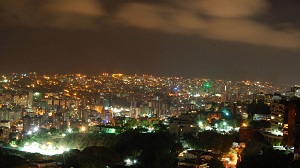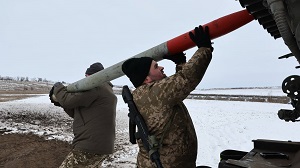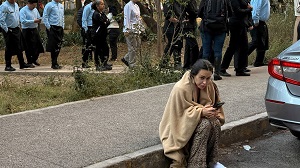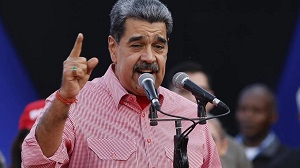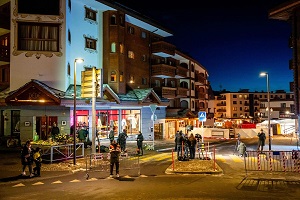Escalation ends, but Israel-Hizbollah tensions remain
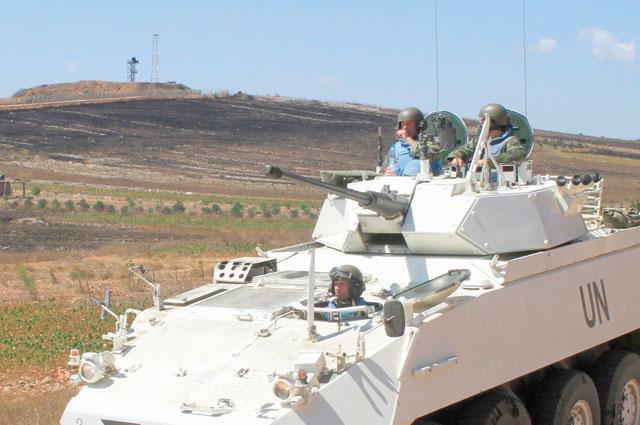
AFP
AVIVIM — An escalation between Israel and Hizbollah has ended after a brief exchange of fire, but tensions remained high along the Lebanese border Monday after the enemies traded accusations.
Residents returned to life as normal on both sides of the border, though burnt fields could be seen and the Israeli military had established new checkpoints.
Schools were open in the Israeli village of Avivim, from which the Lebanese town of Maroun Al Ras is clearly visible on a nearby hill.
In southern Lebanon, farmers returned to their fields and the United Nations force charged with monitoring the border area resumed its patrols, an AFP journalist said.
"We're used to this kind of thing," said Ali Al Safari, a resident of Bint Jbeil on the Lebanese side of the border.
"We remain determined and calm."
Sunday’s incident, which caused no casualties, followed a week of rising tensions that included what Hizbollah described as an Israeli drone attack on its Beirut stronghold on August 25.
Israel has not acknowledged that attack but subsequently accused the Iranian-backed Lebanese Shiite movement of working with Tehran to produce precision-guided missiles on Lebanese soil.
Hizbollah had warned of retaliation, and on Sunday it fired up to three anti-tank missiles from Lebanon at an Israeli battalion headquarters near Avivim and at a vehicle Israel said was a military ambulance.
Israel retaliated with around 100 artillery shells targeting the squad that fired the missiles.
Hizbollah issued a statement soon afterwards saying it had destroyed an Israeli military vehicle and killed and wounded those inside.
Israel’s military later refuted the claim, saying nobody was wounded.
Decoy operation?
But Israeli media have reported that the military staged an evacuation of two supposedly injured soldiers, who were not in fact wounded, in order to de-escalate the situation.
Some Israeli newspapers ran photos showing the soldiers with allegedly fake injuries being evacuated.
They said the thinking was that Hizbollah could feel it achieved revenge with casualties but would also expect a blistering Israeli response, meaning it would stop its assault.
Israel’s military declined to comment.
It appeared neither side wanted a prolonged escalation.
After the exchange of fire began, Lebanon’s Prime Minister Saad Hariri contacted senior US and French officials to urge their countries and the international community to intervene.
The UN called for restraint and France said it had made “multiple contacts” to avert further fire.
The United States voiced concern, slamming the “destabilising role” of Iranian allies in the Middle East and saying it “fully supports Israel’s right to self defence”.
Israel had been on alert for a Hizbollah response.
The organisation’s chief Sayyed Hassan Nasrallah said on Saturday his movement had decided to respond to the Israeli drone attack.
The pre-dawn August 25 attack involved two drones — one exploded and caused damage to a Hizbollah-run media centre and another crashed without detonating due to technical failure.
The incident came hours after Israel launched strikes in Syria to prevent what it claimed was an impending Iranian drone attack on its territory.
Hizbollah says the strikes killed two of its members.
A source connected to Hizbollah called Sunday’s fire a response to those deaths and said a reaction to the alleged drone attack would take place in the air.
‘No sirens’
Israel has carried out hundreds of strikes against what it says are Iranian and Hizbollah targets in neighbouring Syria since the civil war began there in 2011.
It has pledged to prevent its arch-foe Iran from entrenching itself militarily in the neighbouring country.
Iran and Hizbollah, along with Russia, have backed Syrian President Bashar Assad in the conflict.
But a drone attack by Israel inside Lebanon would mark a departure — what Nasrallah labelled the first such “hostile action” since a 2006 war between them.
The escalation came ahead of Israel’s September 17 election.
Prime Minister Benjamin Netanyahu is seen as wanting to avoid a major conflict before the vote, but he has also warned that Israel was “prepared for any scenario”.
